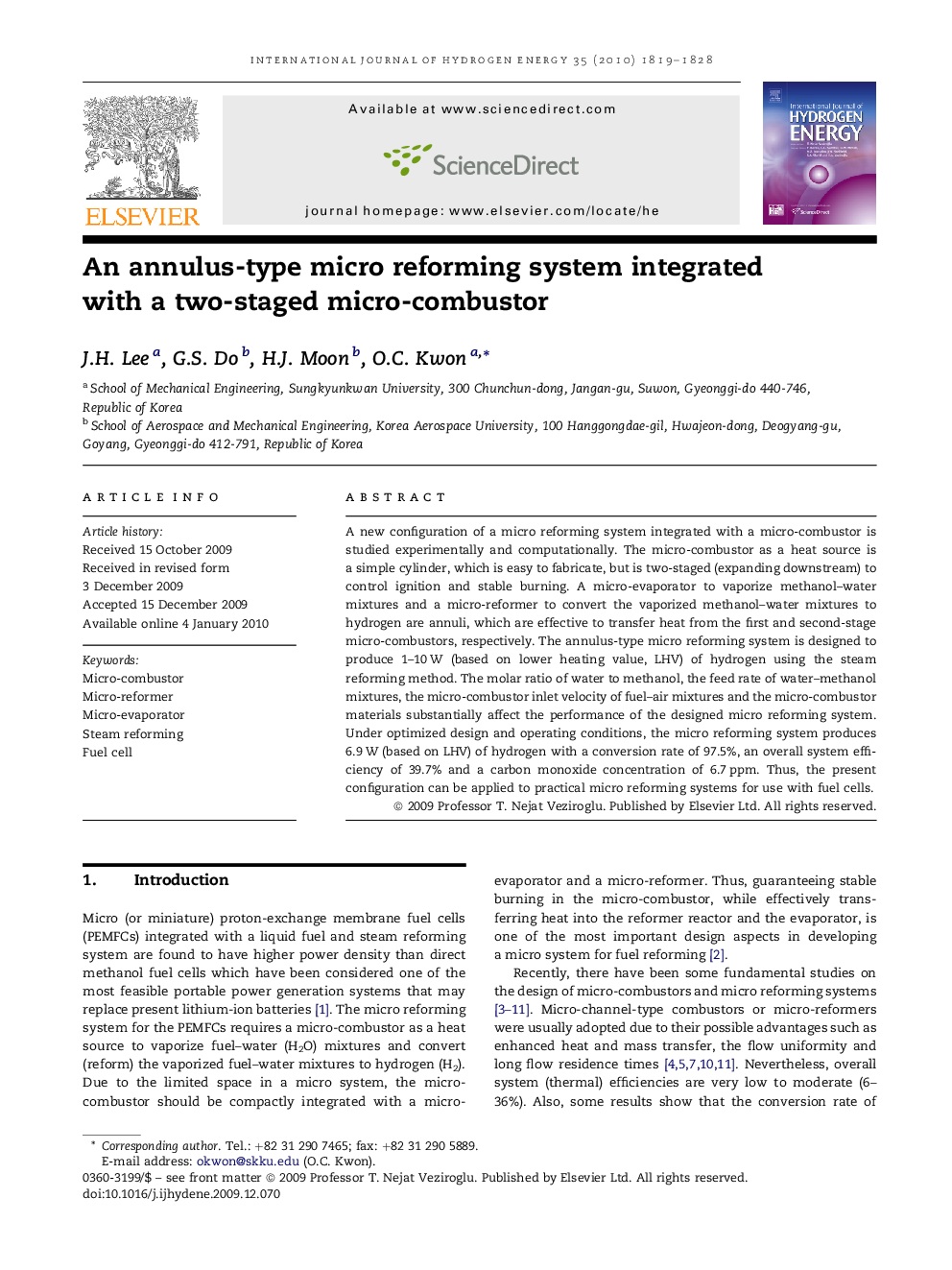| Article ID | Journal | Published Year | Pages | File Type |
|---|---|---|---|---|
| 1273400 | International Journal of Hydrogen Energy | 2010 | 10 Pages |
A new configuration of a micro reforming system integrated with a micro-combustor is studied experimentally and computationally. The micro-combustor as a heat source is a simple cylinder, which is easy to fabricate, but is two-staged (expanding downstream) to control ignition and stable burning. A micro-evaporator to vaporize methanol–water mixtures and a micro-reformer to convert the vaporized methanol–water mixtures to hydrogen are annuli, which are effective to transfer heat from the first and second-stage micro-combustors, respectively. The annulus-type micro reforming system is designed to produce 1–10 W (based on lower heating value, LHV) of hydrogen using the steam reforming method. The molar ratio of water to methanol, the feed rate of water–methanol mixtures, the micro-combustor inlet velocity of fuel–air mixtures and the micro-combustor materials substantially affect the performance of the designed micro reforming system. Under optimized design and operating conditions, the micro reforming system produces 6.9 W (based on LHV) of hydrogen with a conversion rate of 97.5%, an overall system efficiency of 39.7% and a carbon monoxide concentration of 6.7 ppm. Thus, the present configuration can be applied to practical micro reforming systems for use with fuel cells.
